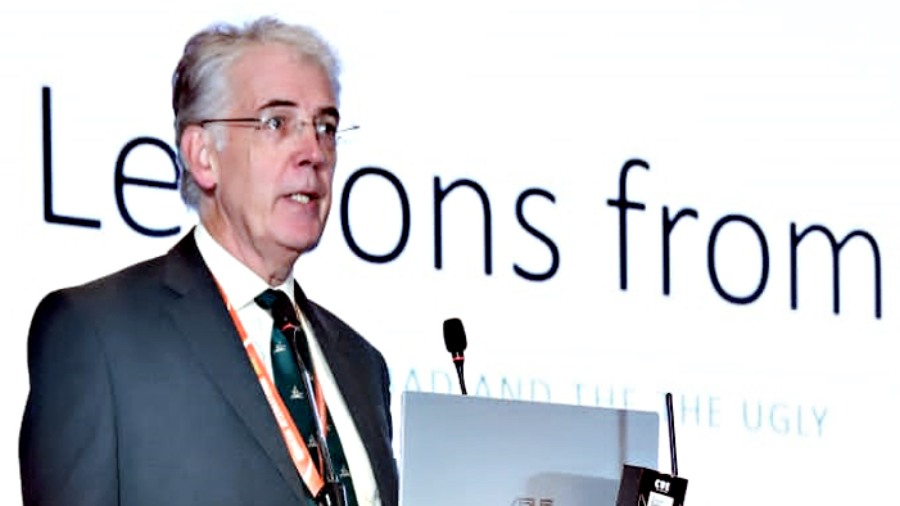The strength of basic science, the resilience of doctors, nurses and other healthcare workers were among the positives that emerged from the two years of Covid, said Andrew Elder, president of the Royal College of Physicians of Edinburgh, at a medical conference in the city on Friday. The abundance of misinformation and disinformation were among the negatives, he said.
Elder, a clinician, said that Covid exposed how socio-economic conditions determined who suffered more. The virus caused disproportionately high mortality in people of lower socio-economic class, the poor.
A doctor from Kolkata said that healthcare infrastructure has advanced from where it stood at the start of the pandemic two years ago and this progress was an outcome of the pandemic.
Elder spoke to The Telegraph on the sidelines of Medicon International 2022, an international conference on advanced clinical medicine.
Strength of science
“Covid has clearly demonstrated that our science is strong. Despite the fact that we didn’t know anything (about Covid), the genetic sequence of the virus was isolated in, I think, about 10 days after the first case was described,” Elder said at the conference organised by Peerless Hospital along with the Royal College of Physicians, Edinburgh, and Association of Physicians of India, West Bengal chapter.
“A vaccine was brought to the market in about a year following the first case. When scientists collaborate globally they can achieve remarkable things,” he said.
Healthcare workers
Elder said that doctors, nurses and healthcare workers stepped up and took responsibility, put themselves in harm’s way and served people.
“Many people died. I was at a memorial event of Tapan Banerjee, a doctor from Kolkata who died of Covid,” said Elder.
“We can take immense pride in the response of healthcare workers in India and around the world.”
The response of healthcare workers was despite immense pressure on health systems that were stretched beyond their limits.
“I don’t know any country in the world that was adequately prepared for what happened. Most healthcare services in countries around the world run at or near their full capacities in terms of numbers of beds, numbers of staff to look after patients,” said Elder.
“But Covid showed healthcare workers can go beyond the limit and have the ability to serve,” he said.
Nature above us
Elder felt that one of the lessons from Covid was that nature is more powerful than human beings. As human beings, we believed we were in control of our destiny, in control of nature.
“The pandemic reminded us one thing, that nature is something that we still have not tamed. Things can go wrong on a global scale. Global calamities can happen. If you asked people two or three years ago, nobody would believe this. They would think this only happens in Hollywood movies,” he said.
Another global calamity that is looming is climate change, he said.
Poor suffered more
It was known even before Covid that socio-economic factors determine health outcomes, and the pandemic once more showed how true this was.
“The virus caused disproportionately high mortality in people of lower socio-economic class, the poor. They have many health outcomes that are worse than wealthy people. Before the pandemic, we knew this and the pandemic has shown us how ugly the problem is and how far we are from sorting out the problem,” said Elder.
“We have to have more equal socio-economic conditions for there to be any hope of equal health outcomes in the near future,” he said.
Disinformation
There was a deluge of information on social media about taming the SARS-CoV2 and much of it was wrong.
“Misinfor mation and disinformation were two worrying aspects of Covid. There was so much information on social media. It was difficult for an ordinary person or lay person to know who to trust. A strong lesson of Covid is the danger of this,” said Elder.
Infrastructure
Chandramouli Bhattacharya, the infectious diseases expert at Peerless Hospital, said that because of the pandemic, there has been an improvement in healthcare systems.
“There are more critical care beds and equipment in hospitals. Besides, the healthcare system has some experience in how to respond to a public health crisis”, he said.
